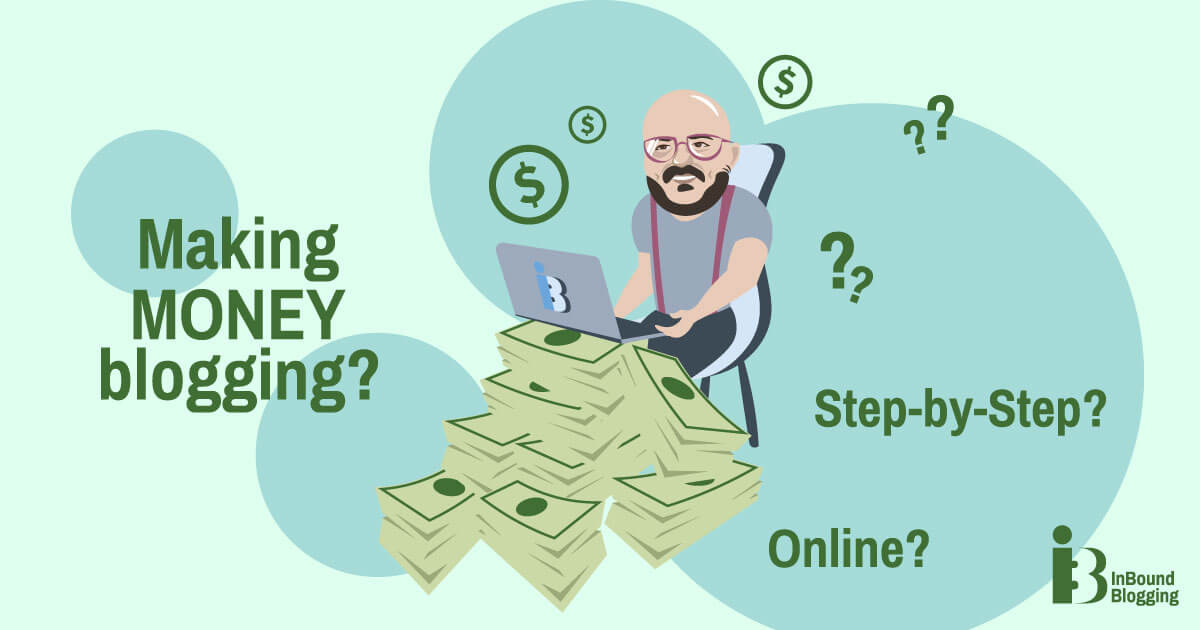Playback speed:
How do you get more people to sign up for your incredible B2B SaaS product?
You need to make sure they can find you online, and that’s where SEO comes in.
SEO stands for search engine optimization, and it’s all about making your website more attractive and relevant to Google, Bing, and other search engines.
This article will teach you the basics of B2B SaaS SEO and how to use some proven tactics to increase your rankings and traffic.
Ready to get started? Let’s go!
What Is B2B SaaS SEO?
B2B SaaS SEO is the process of optimizing a B2B (business-to-business) SaaS (software-as-a-service) website for search engines and users with the goal of attracting and converting customers.
It requires a strategic and holistic approach that covers technical, on-page, off-page, and content aspects of SEO. It also requires constant monitoring, analysis, and optimization to keep up with the changing needs and preferences of the target audience to stand out in a crowded market.
Why Do B2B SaaS Companies Need SEO?
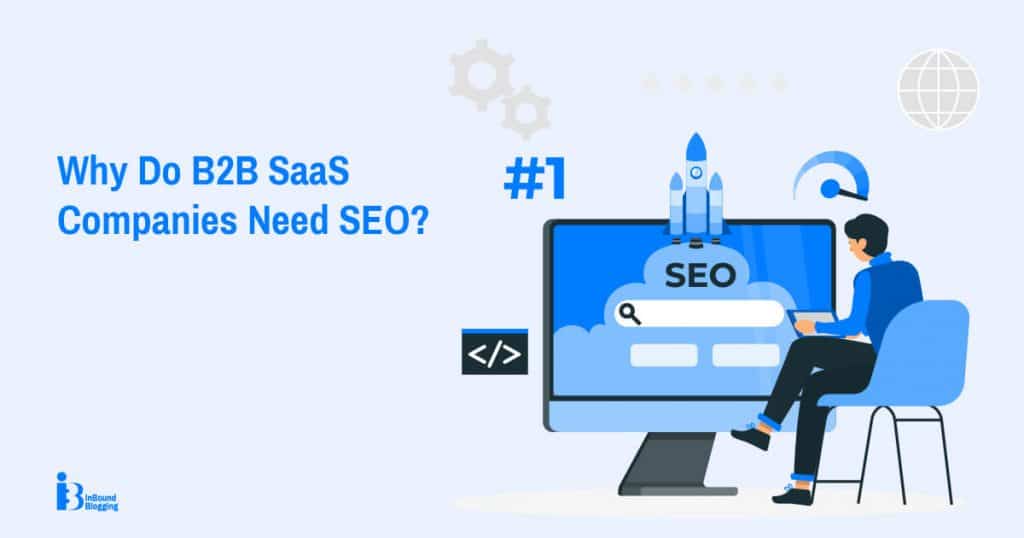
B2B SaaS companies need a solid SEO strategy to increase their online visibility, generate more leads, and, ultimately, grow their business. As a crucial component of digital marketing, SEO helps these companies rank higher in search engine results pages (SERPs). B2B SaaS companies can attract high-quality traffic and drive conversions by optimizing their website and content for relevant keywords.
In short, SEO is a cost-effective way for B2B SaaS companies to achieve long-term success and stay ahead of the competition.
Understanding B2B SaaS SEO
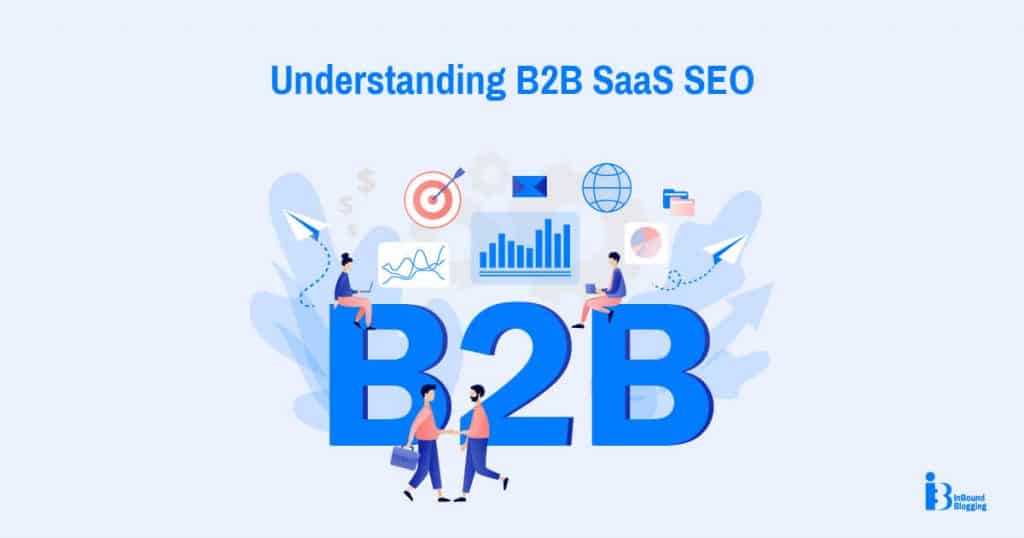
To succeed in SEO for B2B SaaS, you need to understand the key aspects that influence it, such as:
Key differences between B2B and B2C SEO
B2B and B2C SEO are both strategies to optimize websites for search engines, but they have some key differences:
- B2B SEO targets businesses as customers, while B2C SEO targets individual consumers.
- B2B SEO tends to focus on long-term relationships, industry authority, and complex decision-making processes. On the other hand, B2C SEO concentrates on short-term conversions, emotional appeal, and impulse buying.
- B2B SEO keywords are usually more specific, technical, and niche-oriented, while B2C SEO keywords are usually more general, popular, and broad.
- B2B SEO content is typically informative, educational, and detailed, while B2C SEO content is usually more engaging, entertaining, and concise.
B2B SEO vs. B2C SEO
| Comparison Criterion | B2B SEO | B2C SEO |
| Customers | Businesses | Individuals |
| Focus | Long-term relationships, industry authority, and complex decision-making processes | Short-term conversions, emotional appeal, and impulse buying |
| Keywords | Specific, technical, and niche-oriented | General, popular, and broad |
| Content | Informative, educational, and detailed | Engaging, entertaining, and concise |
Target audience analysis for B2B SaaS
A comprehensive target audience analysis involves researching the industry, identifying potential customers, and understanding their specific needs and pain points. This analysis must include factors such as job titles, company size, and industry verticals.
Additionally, it is important to understand the decision-making process and key influencers within the target audience. With this information, B2B SaaS companies can tailor their messaging and marketing efforts to resonate with their potential clients and achieve tangible results.
Keyword research for B2B SaaS
Keyword research includes finding and analyzing the words and phrases that prospects use to search for your B2B SaaS product or service. Researching keywords helps you understand the needs, pain points, and goals of your future clients, as well as how competitive your solution is and how much demand there is.
Thorough keyword research also helps you optimize your website, content, and marketing campaigns for better visibility, traffic, and conversions.
Identify SEO goals and metrics for success
Goals are the desired outcomes that you want to achieve with your website, such as increasing traffic, conversions, or brand awareness. Metrics are the measurable indicators that show how well you are performing towards your goals. By defining your SEO goals and metrics, you align your efforts with your business objectives and track your progress over time.
Advantages of Doing SEO for B2B SaaS
Doing SEO for B2B SaaS sites offers a plethora of advantages, including:
Increased brand visibility and authority
By ranking high on search engines, you increase your exposure and recognition among potential customers searching for software solutions. You also establish yourself as a trusted and credible source of information and expertise in your niche.
Competitive edge
Optimizing your website and content for relevant keywords helps you outrank your competitors and capture more market share. You can also differentiate yourself from other software providers by highlighting your unique value proposition and benefits.
Targeted traffic and increased lead generation
Aligning your content with the search intent of your audience gets you closer to attracting qualified prospects who are interested in your software and ready to take action. You can also nurture them through the buyer journey by providing valuable and engaging content that educates and persuades them.
More cost-effective marketing and reduced dependency on paid ads
By investing in SEO, you can generate organic traffic that is sustainable and long-lasting, without relying on paid ads, which can be expensive and short-lived. Furthermore, you can improve ROI (return on investment) by reducing your customer acquisition costs (CAC) and increasing your customer lifetime value (CLV).
Long-term, measurable results
B2B SaaS SEO relies on data-driven insights and analytics to identify effective keywords and strategies to drive targeted traffic to a company’s website. This not only increases brand awareness but also generates high-quality leads, providing sustainable growth and measurable ROI for companies seeking long-term success.
Conduct a Competitor Analysis for B2B SaaS SEO
Competitor analysis is the activity of identifying and assessing the strengths and weaknesses of your competitors in the B2B SaaS SEO market. It helps you comprehend how your SEO strategy compares to theirs, what keywords they are ranking for, and what content they are producing.
That way, you can find gaps or opportunities to fill, thus enhancing your organic visibility and traffic. A competitor analysis can also help you detect any potential threats or challenges from new entrants or existing players in your niche.
“Maintaining a competitive advantage is predicated on website performance, link building, keyword research, industry context, and even ensuring that the competitors you compare a brand against are suitable for comparison. Missing any of these factors for our clients leaves them at a disadvantage compared to longer-established businesses.
One of the most common examples of using competitive analysis to our advantage is choosing which keywords to bid on and grow for a specific client. Some high-volume keywords are unrealistic to pursue from the get-go, either too expensive to invest in or too competitive to get any real value from that investment. We help our clients learn and understand how to operate within and create keyword niches to maximize their chances and visibility on SERPs.” Kevin Miller, Co-founder and CEO, KM.
B2B SaaS On-Page Optimization Strategies
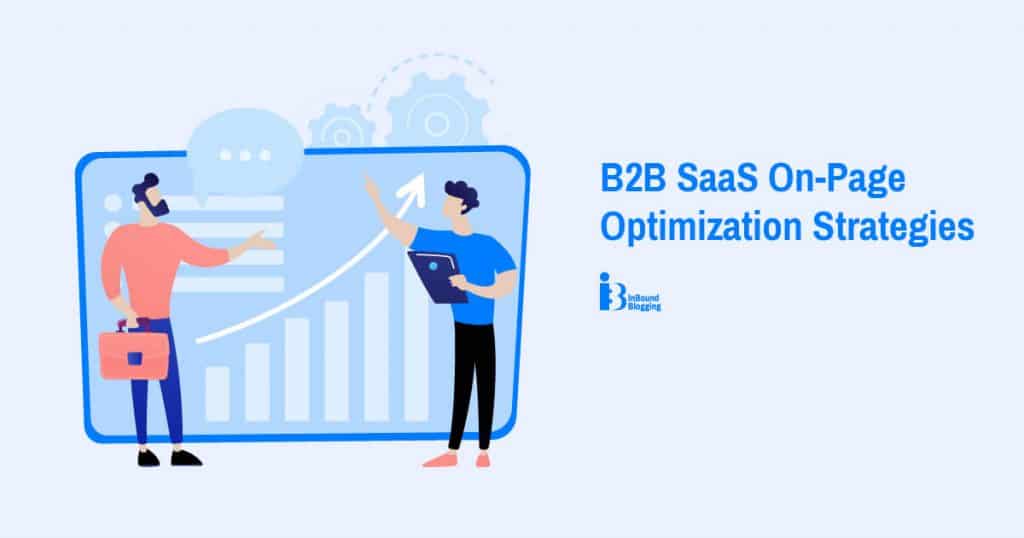
On-page optimization aims to improve the elements of your web pages that affect their ranking and user experience.
Let’s find out what to focus on:
Optimize title tags and meta descriptions
B2B SaaS SEO requires optimizing title tags and meta descriptions. These components are essential for communicating the relevance and value of your website to search engines and potential customers.
Using effective title tags and meta descriptions means including relevant keywords and phrases and providing an accurate interpretation of your website’s content. Make it compelling enough to encourage clicks and engagement.
Utilize internal linking and optimize URL structures
Internal linking and URL structures are unique aspects of a B2B SaaS SEO strategy. Internal linking helps establish the hierarchy and relevance of your pages as well as distribute authority and ranking power across your site.
URL structures, on the other hand, help to make your site more user-friendly and crawlable by search engines. By optimizing both elements, you can improve your site’s performance and visibility in organic search results.
Off-Page SEO Optimization and Link Building
Off-page SEO optimization is all about improving the external factors that affect your website’s ranking and reputation. Off-page optimization helps search engines evaluate the authority, popularity, and trustworthiness of your website. It also helps users find and recognize your brand online.
Here are 3 key off-page optimization and link-building strategies for B2B SaaS SEO:
1. Build authoritative backlinks for B2B SaaS websites
Other websites link to your website via backlinks. Among the most important ranking factors, they are an indication of your site’s credibility, relevance, and value to your niche. They also drive referral traffic and leads.
To build authoritative backlinks, you need to:
- Develop high-quality, linkable content.
- Conduct outreach to relevant and reputable websites in your industry and ask them to link to your content.
- Offer value in exchange for links, such as guest posts, testimonials, case studies, etc.
- Monitor your backlink profile and remove or disavow any low-quality or spammy links that can harm your SEO performance.
Earn the best links for your SaaS website—get in touch with our expert link builders today!
2. Strategies for guest blogging outreach
Guest blogging is a strategy where you publish content on other websites in exchange for a link back to your own site. The benefits of such collaboration are not limited to obtaining valuable links only. You can build relationships with industry influencers, showcase expertise, and reach new audiences.
To succeed in this endeavor, you need to identify relevant websites, research their content guidelines, and pitch a compelling topic idea. Next, write high-quality original content, proofread and edit it, and deliver it on time. Once it’s published, promote it on social media and in online communities.
3. Leverage social media and online communities for link building
Social media and online communities are valuable tools for building brand awareness, reputation, and loyalty. To effectively utilize these platforms for link building in B2B SaaS, choose the ones that align with your goals. Then, create a professional profile and publish engaging content on a regular basis. Encourage social sharing, participate in relevant discussions, and build relationships with influencers and authority figures in your industry. This will help generate more traffic, leads, and backlinks.
“Sharing content in relevant online groups, communities, and forums can help drive traffic to a B2B website. For example, sharing insightful web pages on Facebook or LinkedIn groups can increase content exposure, resulting in higher traffic.
Furthermore, this strategy also provides networking opportunities among industry experts. Engaging with these communities can boost content’s reach, establish brand authority, and create lasting connections with peers and potential collaborators.
To further bolster their online presence, B2B marketers can harness the power of platforms like Reddit and Quora. By actively seeking relevant queries and providing well-informed responses, they can integrate links to their content and encourage users to explore their valuable resources.” Natasha Rei, Digital Marketing Manager, Explainerd
Technical SEO for B2B SaaS Websites
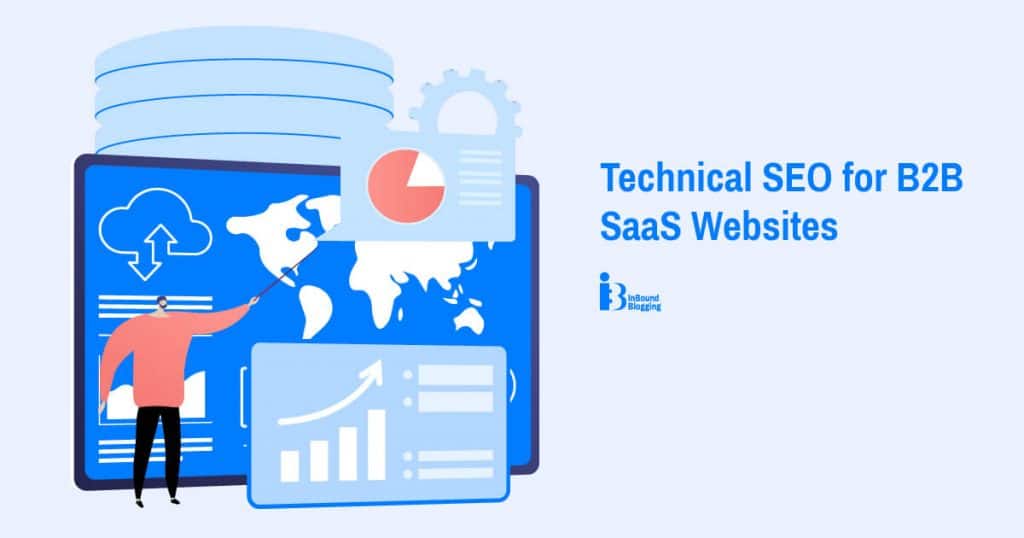
Optimizing the technical aspects of your website that affect its performance and usability helps search engines access, understand, and rank it better. This also allows users to have a smooth and satisfying experience on your site.
Here are the top 3 technical SEO strategies for B2B SaaS websites:
1. Optimize website speed and performance
Website speed is crucial for SEO ranking and user satisfaction. There are a few simple steps to keep speed at an optimal level:
- Use a reliable web hosting service with fast loading times and uptime guarantees.
- Distribute content globally with a content delivery network (CDN).
- Minimize and compress code to reduce file size and loading time.
- Optimize images by resizing them appropriately, choosing the right format (PNG for graphics and JPEG for photos), and compressing them.
2. Implement structured data markup for better search visibility
Structured data markup is a method of adding code to a website to aid search engines in understanding the content’s context and meaning. This allows rich snippets to display additional information such as ratings, reviews, prices, and images. It enhances search visibility and click-through rates by making results more relevant to users. You can implement structured data markup using tools such as Google’s Structured Data Markup Helper or Schema.org.
3. Mobile optimization and responsive design considerations
Mobile optimization improves website performance on mobile devices. It’s critically important for SEO because of Google’s mobile-first indexing. It’s also significant for providing a better user experience. Basically, you must create a mobile-friendly website that’s responsive to different screen sizes and orientations.
To optimize a site for mobile search, you should:
- Use a responsive web design framework.
- Test on various devices and browsers.
- Minify unused code and other intrusive elements.
- Optimize images, videos, and other media files.
- Use a content delivery network (CDN) for improved performance.
Content Marketing and SEO for B2B SaaS
Content marketing is a powerful way to attract and retain B2B SaaS customers.
Read on to learn more about its superpower.
Develop a B2B SaaS SEO content strategy
Content strategies outline the goals, audience, topics, formats, channels, and metrics of content marketing campaigns. That helps create content aligned with business objectives, customer needs, and SEO best practices.
6 simple steps to develop a content strategy for a B2B SaaS business:
- Define your goals.
- Identify your audience.
- Research their interests
- Choose the appropriate formats.
- Select channels for distribution.
- Define metrics for measuring the effectiveness of your content marketing and SEO efforts.
Align your content with search intent
There is no definitive answer to what search volume B2B SaaS keywords should have, but considering the user’s search intent is a great starting point for any keyword strategy.
Search intent is the purpose behind a user’s search query. There are four main types of search intent: informational, navigational, transactional, and commercial.
Let’s dive a bit deeper:
- Informational queries refer to users seeking answers to questions.
- Navigational queries are about seeking specific websites or pages
- Transactional searches are done by users who want to buy or perform an action.
- Commercial searches are about comparing products or services before making a decision.
Analyze the top-ranking pages for your target keywords and create accurate, relevant, and useful content to align with search intent.
Create valuable and engaging content for the target audience
Content is the core of your B2B SaaS SEO strategy. It is what attracts, educates, and motivates your audience to take action. A content piece can take many forms, including blog posts, case studies, white papers, ebooks, webinars, videos, podcasts, infographics, etc.
To produce high-quality content for B2B SaaS, you need to:
- Provide answers to your audience’s questions and solve their problems while showcasing your expertise and building trust.
- Use natural language and avoid keyword stuffing or over-optimization.
- Use different content formats to cater to different learning styles and preferences.
- Maintain fresh and relevant content by updating it regularly.
“The best way to optimize websites and content is to stay on top of industry trends and update content regularly so it never gets stale. Stay consistent and current to become the go-to resource your audience is looking for as new obstacles, questions, and solutions arise.” Sarah Magazzo, Digital Marketing Manager, Mondo
Incorporate relevant keywords and optimize content for SEO
To achieve success in the world of B2B SaaS, it’s essential to incorporate relevant keywords and optimize content for SEO. The right words and phrases in your content can help your website rank higher in search engines and attract more visitors.
Moreover, optimizing your content can help you build credibility with search engines and ultimately enhance your overall visibility.
Getting started with content creation can be difficult—let us help!
Measuring and Analyzing B2B SaaS SEO Performance
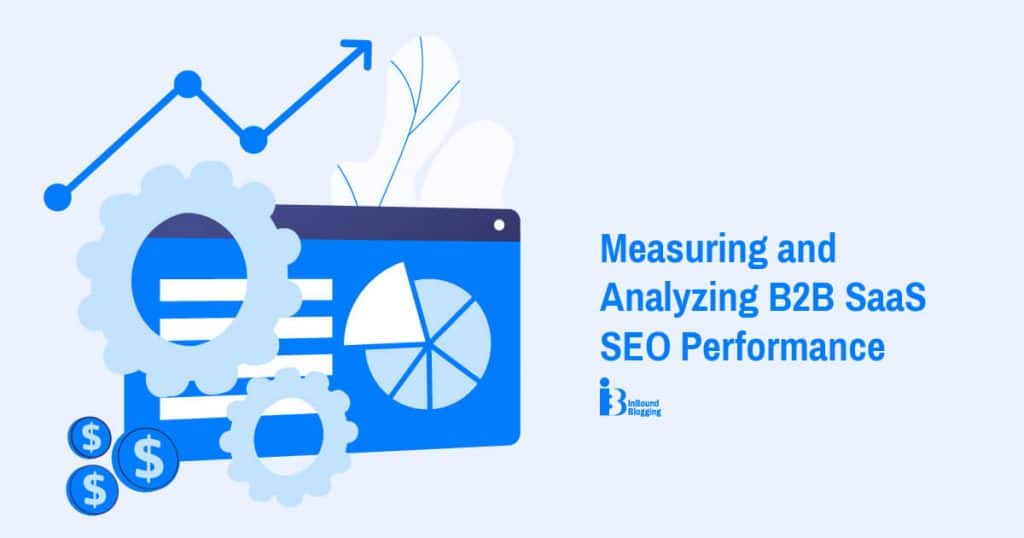
Regularly measuring and analyzing the SEO performance of your B2B SaaS site is important to assess whether the direction you’re taking is the right one.
Key metrics to track and measure SEO success
To optimize your SEO efforts, you must track and measure key metrics that reflect your website’s visibility, traffic, conversions, and revenue. Some of the most important metrics to monitor are:
- Organic search traffic: It measures how many visitors arrive at your website from search engines.
- Keyword rankings: They show how your target keywords rank in search engine results pages (SERPs).
- Click-through rate (CTR): the percentage of people who click on your website link from the search engine results.
- Bounce rate: the percentage of visitors who leave your website after viewing just one page.
- Average session duration: how long users spend on your website on average.
- Conversion rate: the percentage of visitors who convert into customers or sign up for free trials on your site.
- Customer lifetime value (CLV): the average revenue generated by a customer over their entire relationship with your business
Utilize Google Analytics and other tools for SEO analysis
Google Analytics and other tools can provide you with valuable insights into your SEO performance. Google Analytics is a free tool that helps you track and report on various aspects of your website traffic, such as sources, behavior, goals, and e-commerce. You can also use it to create custom reports and dashboards that suit your specific needs and objectives.
Other tools that can complement Google Analytics and enhance your SEO analysis include:
- Google Search Console: It helps you monitor and fine-tune your website’s presence on Google.
- SEMrush: You can use SEMrush to conduct competitor analysis, keyword research, SEO audits, etc.
- Moz: It’s a great assistant in measuring and improving your domain authority, backlink profile, and on-page SEO.
- Ahrefs: Utilize it to analyze your organic search performance, keyword rankings, content quality, and more.
Make data-driven decisions to refine and improve SEO strategies
By using these tools, you collect and interpret data that can help you make data-driven decisions to refine and improve your SEO strategies. You can identify what works well and what needs improvement, and test different hypotheses and experiments to optimize your SEO results. You can also benchmark your performance against your competitors and industry standards and set realistic and achievable goals for your SEO growth.
At What Point Does a B2B SaaS Business Need Professional SEO Services?
Many B2B SaaS companies wonder if they need to invest in professional SEO services to grow their online presence and attract more customers. The answer is not simple, as it depends on several factors, such as the size of the company, the competitiveness of the industry, the goals of the marketing strategy, and the budget available.
However, there are some indicators that show a possible need for professional SEO services, such as:
- Organic traffic growth rate: If the organic traffic is stagnant or declining, it may be a sign that your website needs optimization and improvement.
- Conversion rate: If the organic traffic is not converting into leads or customers, it may be a sign that your site is not targeting the right audience or providing enough value.
- Competitive landscape: If the competitors are ranking higher than your website for relevant keywords and topics, it may be a sign that they have a stronger online authority and reputation.
Hiring a professional B2B SaaS SEO agency can help companies improve their organic traffic, conversion rate, and competitive edge, which can ultimately lead to more revenue and growth.
How Is InBound Blogging’s SEO Strategy Unique to B2B SaaS Businesses?
Dedicated and result-oriented—that’s the best way to describe us! Our team consists of hardworking experts who are passionate about SEO, content marketing, and link building.
InBound Blogging offers B2B SaaS SEO services that are:
- Tailored to your specific needs and goals.
- Based on in-depth research and analysis of your niche.
- Focused on creating and optimizing high-quality content.
- Designed to improve your website’s performance and user experience.
- Aimed at building your authority and trust in your industry.
We can boost your conversions, increase organic traffic, and grow your business!
Real-life success examples
We want to bring to your attention a recent B2B SaaS SEO case study regarding one of our main clients—Brosix, a recognized and established name in the instant messaging industry.
Thanks to our efforts to take their online presence to the next level, in only six months, we managed to:
- Increase their website traffic by 148%—from 23,857 to 59,275 organic visitors per month.
- Brosix ranked for more keywords—from 16,559 to 29,260 in total, which is a change of about 90%.
- The number of organic keywords in positions 1-3 went from 578 to 1454.
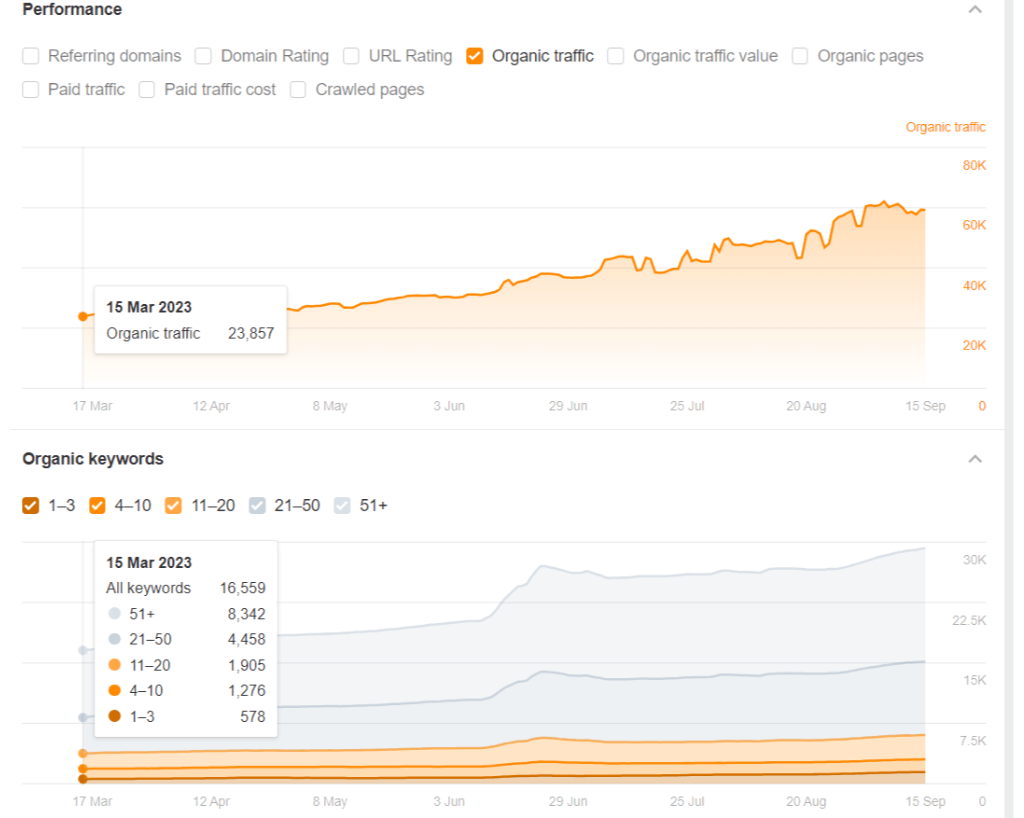
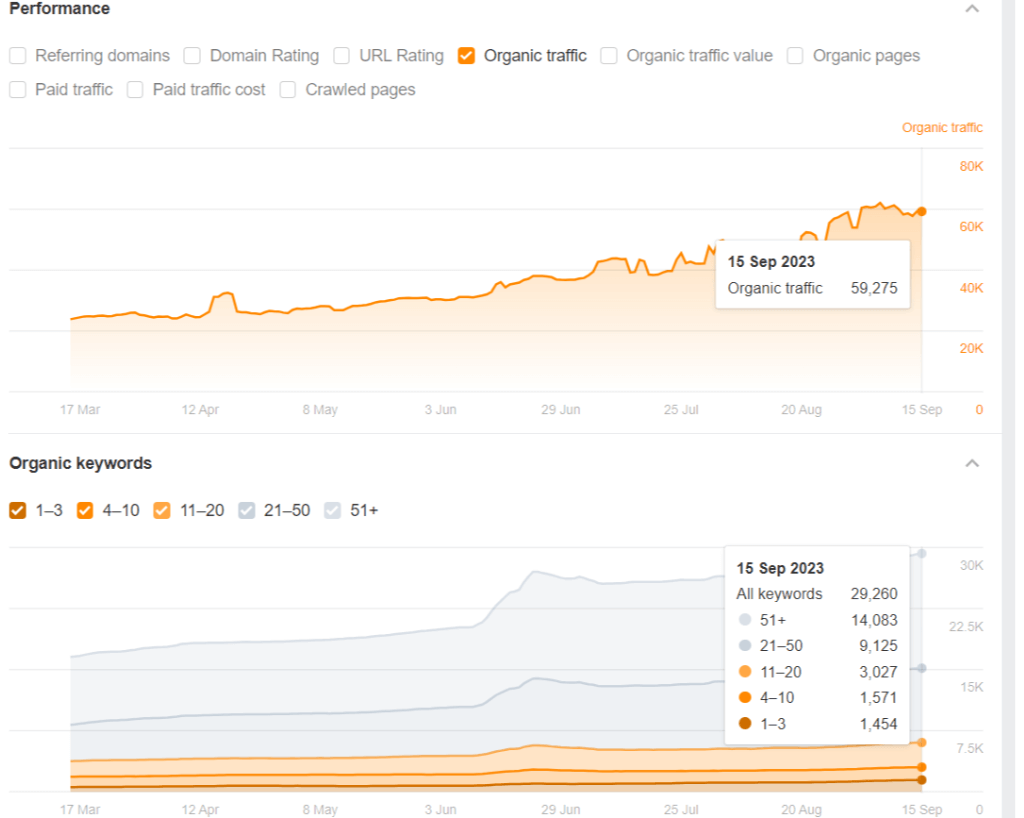
What did we do exactly?
✔ Targeted the right keywords with both search and business potential.
✔ Implemented semantic SEO strategies.
✔ Built the right internal link structure.
✔ Secured authority external links.
Our journey together to the top of Google and to future Brosix customers is still ongoing. New challenges and new wins are forthcoming.
Conclusion
B2B SaaS SEO is a complex and ever-evolving field that requires a strategic approach and continuous effort. Following the advice outlined in this definitive guide can drive more traffic to your website, generate high-quality leads, and ultimately boost your revenue.
Remember to keep a close eye on your metrics, regularly optimize your content and keywords, and stay informed about the latest SEO trends and best practices. With dedication and a data-driven mindset, you can achieve long-term success in the competitive world of B2B SaaS.
FAQ
Why is B2B SaaS SEO important for businesses?
SEO for B2B SaaS is important for businesses because it helps them get noticed by potential customers. SEO is an investment that pays off in the long run and continuously brings benefits.
How can B2B SaaS SEO help improve the visibility and ranking of my website?
The B2B SaaS SEO roadmap to visibility and rankings includes keyword research, creating quality content, technical SEO, building links from authoritative sites, and measuring and monitoring results. With consistent SEO efforts, you can improve your positions on Google and other search engines. This can help you attract more qualified leads, increase conversions, and grow your revenue.
What are the key strategies for optimizing a B2B SaaS website for search engines?
To optimize your B2B SaaS website for search engines, you need to:
– Identify your target audience and keywords.
– Optimize your website’s structure and content.
– Leverage content marketing and link building.
– Measure and improve your performance.
– Regularly conduct an SEO audit of your website’s technical aspects.
How does keyword research play a role in B2B SaaS SEO?
Keyword research plays a vital role in SEO for B2B SaaS because it helps you understand the intent, needs, and challenges of your target audience as well as the competitive landscape of your industry. By using keyword research tools and techniques, you can discover the best keywords to optimize your website, content, and marketing campaigns for higher visibility, traffic, and conversions.
What are some effective on-page optimization techniques for B2B SaaS SEO?
On-page optimization improves web pages for search engines and users. Some effective B2B SaaS SEO techniques are:
– Discover keywords that match your audience’s intent.
– Include keywords in title tags, meta descriptions, headings, and URLs.
– Write content that answers questions, provides solutions, and shows expertise.
– Use internal and external links to connect pages and build trust.
– Add images, videos, infographics, or other multimedia to enhance the content.
– Use schema markup to provide structured data and generate rich snippets.
How can content marketing benefit B2B SaaS SEO efforts?
For B2B SaaS companies, content marketing can improve their SEO and get them more organic traffic. Content marketing can help B2B SaaS SEO by:
– Increasing brand awareness and authority.
– Generating more leads and conversions.
– Improving customer retention and loyalty.
What role does link building play in improving search engine rankings for B2B SaaS websites?
Link building is one of the most important factors that affect the search engine rankings of B2B SaaS websites. It helps to increase the authority, relevance, and trustworthiness of your site, which are essential for ranking well in competitive niches. Link building also helps to drive qualified traffic, leads, and conversions to your website, which are the ultimate goals of any B2B SaaS business.
Are there any specific technical SEO considerations for B2B SaaS websites?
Technical SEO makes a website search engine-friendly. For B2B SaaS websites, important technical SEO factors are:
– Site speed: Faster is better. Improve by using reliable hosting, compressing images and files, minifying code, caching, and a CDN.
– Mobile friendliness: Works well on different screens and devices. Improve the site by using a flexible layout, avoiding pop-ups and interstitials, using clear fonts and colors, and testing the site.
– Structured data: Gives more information to search engines. Helps them understand and show the pages better by using Schema.org markup.
How can analytics tracking help measure the success of B2B SaaS SEO campaigns?
Analytics tracking is essential for B2B SaaS SEO campaigns as it enables marketers to measure and improve their performance and impact on the target audience. By using analytics tools, marketers can track and optimize various metrics, such as organic traffic, conversions, bounce rate, and others. Analytics tracking also shows the value of SEO to the business by demonstrating how it contributes to business goals and revenue growth.
What are some common challenges in B2B SaaS SEO, and how can they be overcome?
These are the common B2B SaaS SEO challenges and, respectively, their solutions:
– Outranking bigger brands: Adopt a strategic approach to identifying the keywords and topics that the competitors are not covering well or at all. Then, create content that fills those gaps and provides value to the target audience.
– Creating relevant and engaging content: This challenge involves understanding the needs, pain points, and goals of potential customers and crafting content that addresses them in a clear, concise, and compelling way. The content should also be search engine- and user-friendly.
– Finding long-tail keywords: Discovering low-competition, high-intent keywords that match the specific queries of prospects requires extensive research of the user’s search intent using tools like Google’s Keyword Planner, SEMrush, or Ahrefs.
– Measuring and improving ROI: The solution here lies in tracking and analyzing the performance of SEO campaigns using metrics like organic traffic, rankings, bounce rate, conversion rate, and customer lifetime value. These metrics help to evaluate the effectiveness of SEO efforts and identify areas for improvement.



